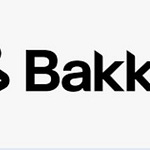Welcome to Episode 92 of Special Situation Investing.
"Pay attention to the cannibals" - Charlie Munger
The latest 13F filings release contained some fascinating revelations. Judging by the media’s response, Michael Burry’s put options on the SPY and QQQ were the most important development. But rather than get hyped up about options that we don’t know the strike price or duration of, we instead found Burry’s numerous new long positions in cheaply-priced energy and shipping stocks far more interesting.
Another filing we were anxious to see was that of David Einhorn’s Greenlight Capital. We’ve written a couple pieces about Einhorn’s recent shift in strategy toward buying cheap stocks that are either buyout targets—such as Southwestern Energy—or have massive dividend and buyback programs—such as CONSOL Energy. As it turned out, Einhorn increased his holdings of both of those companies by 3.5% and 4.75%, respectively.
But perhaps most fascinating of all, Einhorn wasn’t the only high-profile investor who bought CONSOL Energy (CEIX), Mohnish Pabria also bought shares of the coal producer. In addition to CONSOL, Pabrai bought another coal producer, Alpha Metallurgical Resources (AMR) and sold 100% of all his other positions in Micron Technology, Brookfield Corp and Seritage Growth Properties. Of course, the vast majority of Pabrai’s money is invested outside of the U.S. and thus is not captured in these filings, but the fact that the only thing in the U.S. Pabrai found worth holding was two coal producers was mind-blowing.
Upon closer examination, Pabrai’s purchases have a very logical explanation—both companies are uber cannibals.
“Uber cannibals”
Back in 2006, Pabrai published an article for Forbes.com titled, Move Over Dogs of the Dow, Here Come The Uber Cannibals. In the piece, Pabrai highlights an overlooked corner of the stock market that he describes as “cash-rich, undervalued businesses that are consistently buying back shares, thereby generating tremendous value for shareholders.” Pabrai dubbed these stocks “uber cannibals” because of the rate at which they consume their own shares. Every year since, Pabrai publishes a list of five uber cannibals on his blog. The current list includes the following stocks.
Assured Guaranty (AGO)
Primerica (PRI)
Jack in the Box (JACK)
eBay (EBAY)
Toll Brothers (TOL)
In this year’s update, Pabrai discusses why he removed two stocks and replaced them with eBay and Toll Brothers. He said the following:
Ebay and Toll Brothers may be better buyback vehicles from here, however. Ebay has bought back 48% of its shares in the last 5 years and 9% in the last year alone. Toll Brothers has plowed back earnings into share repurchases and bought back 9% of its shares last year.
If 48% in five years and 9% in one year qualified these companies as uber cannibals, an interesting question to answer is how CONSOL and Alpha would compare against this benchmark. For part of the answer, consider what we wrote in our previous piece on CONSOL Energy:
[CONSOL Energy] could buyback somewhere between 23% and 34% of the company’s market cap over the next year. This in turn, all else remaining constant, could lead to a return of 30% to 51%. So as we can see, CONSOL is set up to potentially literally force a solid return simply by allocating its strong FCF to share buybacks.
Since that piece was written, CONSOL followed through with its plan of allocating 75% of FCF to shareholder returns, primarily in the form of buybacks. In the last quarter alone, shares outstanding were reduced from approximately 34 million to 32 million. This was a reduction of almost 6% in three months. Since our piece dropped on June 3rd, we’ve watched CONSOL’s stock price rally nearly 50%. (The dots in the chart below indicate June 3rd.)
The situation
Seeing Pabrai buy four times as much Alpha Metallurgical Resources as he did CONSOL Energy motivated us to dig into Alpha a bit deeper. We assumed Alpha’s thesis was similar to the uber cannibal situation at play in CONSOL and that appears to be the case.
In the most recent quarter, Alpha bought back just over one million shares, reducing its share count by 6.7%. But that is just the latest step of a buyback journey Alpha began over a year ago. On March 7th, 2022, it kicked off the process with a $150 million share repurchase program. Since then, the level of the allowed buyback has consistently been raised. It was increased to $600 million in May, 2022, and $1 billion later that year. The allowed level reached its current $1.2 billion in February of 2023. As of July 31st, Alpha had repurchased approximately 5.7 million shares totaling about $850 million over the last seventeen months, equating to approximately 27% of its common shares.
To demonstrate what a monster cannibal Alpha is, consider two opposite extreme cases. In the first, FCF remains flat going forward and Alpha allocates $155 million to buybacks as it did this last quarter. The company’s market cap could appreciate 2.5x to $6.9 billion and it would still be able to repurchase 9% each year. Now consider the opposite extreme where FCF available for buybacks each month falls 60% from $155 million to $61 million. The company could still repurchase 9% of its market cap per year even at its current stock price. In each case, the company would still meet Pabrai’s benchmark for an uber cannibal.
While we can’t say for sure why Pabrai bought this coal company, in our estimation, Alpha clearly qualifies for a spot on Pabrai’s list.
Looking to the future, if Alpha’s next two quarters have similar FCF, we’d expect the company to bump up against the $1.2 billion limit to the buyback program by early 2024. Before which time, we expect the limit to be increased again. Additionally, while Alpha currently maintains a small fixed dividend, in its latest quarterly report announced that the dividend will be terminated by the end of the year. The company plans to allocate all shareholder returns to buybacks. So all told, there are no signs of the buyback program getting wrapped up any time soon…in fact just the opposite.
During the company’s conference call earlier this month, a questioner asked what it would take for the dividend to be reinstated. The response of Andy Edison, Alpha’s CEO, leads us to believe the new buyback policy is here to stay for a while. He said:
[I]t strictly has to do with how the market values our company. If we believe the valuation is appropriate, then we might consider going that direction. But it seems like we're a pretty long ways away from that. So…coal market prices spike to $600 a ton and $400 and everywhere in between, and company valuations didn't catch up. So I think we're very content to get to this pure share buyback program and stay there until the market determines it's going to appropriately value us, and then we'll consider some adaptation to the program.
So if the program will remain in place until the market appropriately values this out-of-favor, dirty coal company, Alpha may be buying its shares for a long time.
The outlook
With the recent run-ups in both Alpha and CONSOL’s stocks, it’s legitimate to ask if the opportunity been missed. Our short answer is, no, we don’t believe the opportunity in coal stocks is over. As we wrote about in our first piece ever on the coal sector, we believe the opportunity in coal stocks has the potential to outperform the market for decades similar to the stellar outperformance of tobacco stocks. We said:
We believe the coal sector has many of the same attributes today [as the tobacco sector]. Coal, if not the most hated industry, is definitely a contender for that less-than-enviable top position. And even after the sector’s face-ripping appreciation over the last two years, coal companies are still sitting with P/E ratios in the low single digits, with shareholder payouts far above the market average. Such facts point to how many investors consider these companies non-investable.
At the same time, while many in the world would love to breakup with coal once and for all, in 2022 the globe set a new record for coal consumption. And these levels are expected to remain elevated for years as growing demand in emerging economies make up for cutbacks in advanced economies. One has only to look at recent increases in coal-based power in India and Germany to sense just how badly the world still needs coal to sustain itself. While coal may not be chemically addictive, the increase in standard of living its cheap energy provides certainly is.
That piece was written six months ago. Since then, the EIA has come out with projections that even though 2022 set a record for global coal consumption, 2023 is on track to break the record, and 2024 looks like it will be even higher. So, as long as the price stays relatively high and demand keeps setting new records, these companies should keep raking in the cash for years. And as Alpha’s CEO eluded to, as long as the market continues to ignore the sector, keeping the PE ratios low, the best way for these companies to employ their cashflow is to buy back stock.
In addition to underestimating the on-going global demand for coal, we get the feeling that investors just aren’t aware of how these companies have shifted their operations from domestic to export and from thermal coal to met coal (met coal is used for steel production as apposed to thermal coal used in the vilified coal power plants). Both Alpha and CONSOL have made this course-reversal in dramatic fashion over the past years. While Alpha Metallurgical is a Tennessee-based company with its operations in Virginia and West Virginia, currently 70% of its product is shipped to 26 foreign countries and in the last quarter, 90% of its revenue came from met coal. CONSOL’s numbers are almost exactly similar.
Consider the situation in just one of Alpha’s customer countries—India. Accounting for approximately 33% of Alpha’s exports over the past five years, India is projected to have crude steel production growth of 4.4% CAGR through 2050.
How we’re playing it
After singing the praises of two uber cannibal coal producers, it might be surprising to find out that we don’t own either company. It’s true. While both companies have been great investments up about 50% since we began looking a the situation, and we think they have a lot further to run, we are investing in the situation in a different way. Both hosts are playing our bullish thesis on the coal sector through long positions in the asset-light coal royalty company Natural Resource Partners (NRP). The image below was taken from NRP’s most recent 10Q and shows how closely tied NRP is to Alpha. It reveals that 22% of NRP’s revenue resulted from royalties from Alpha.
While not directly a play on the power of Alpha’s massive buybacks, NRP is a diversified bet that will also benefit from Alpha’s continued success. Our previous write-ups on NRP explain why we believe the company is an undervalued, long-term investment. The pieces are listed in chronological order below:
A Coal Royalty Company—Natural Resource Partners (link)
Another Look at Natural Resource Partners (link)
Coal’s Resilient Future (link)
With that, we’ve concluded another episode of Special Situation Investing. As we approach the milestone of 100 episodes, it’s impossible not to think back on all the support you guys have given us over the months. Thank you for commenting, sharing and liking our work as well as for all the emails you’ve sent our way. Your support encourages us that the time and effort we’ve put into each of our pieces is worth it. Thank you. We’ll catch you all next Saturday on another episode.















Share this post